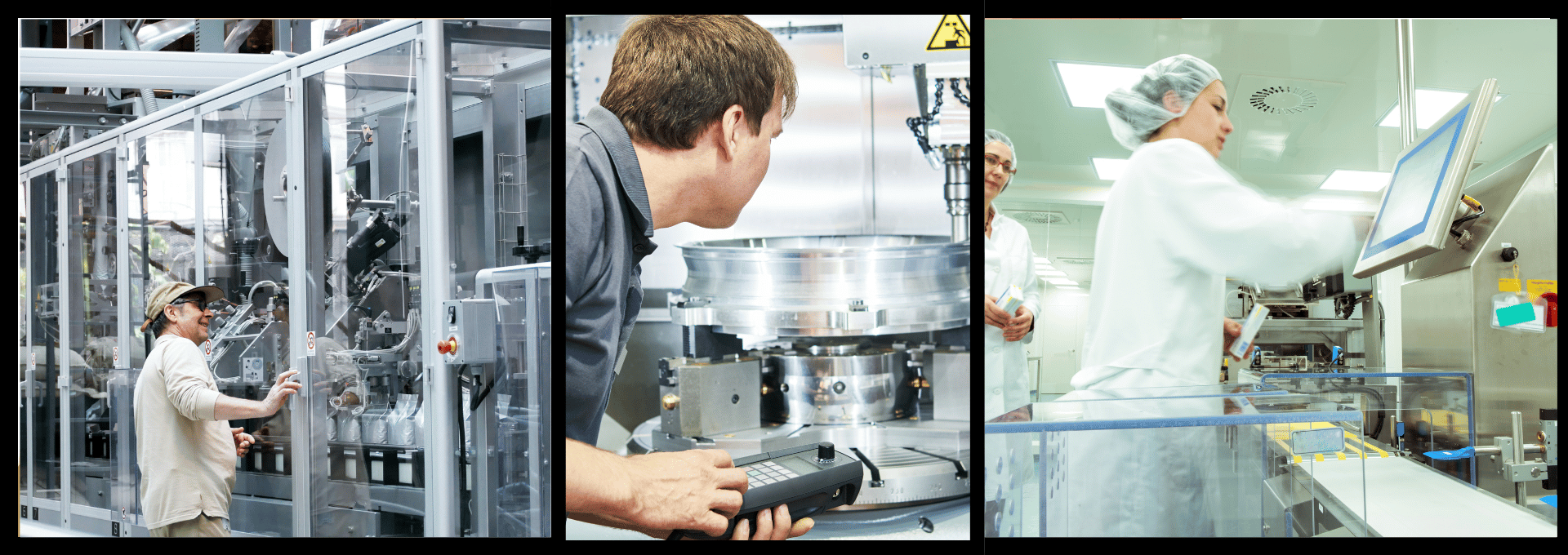Effort, Ability and Skill Development

Success for a manufacturing operator stems from a combination of an employee’s work effort, the employees given ability, and the continuous skill development provided by the employer. Consistent effort ensures reliability, productivity, and a strong work ethic, while raw ability supports fast learning and adaptability on the job. When these traits are coupled with ongoing skills development—through training, mentoring, and hands-on experience—operators become highly competent and valuable team members. This growth leads to improved job performance, greater confidence, and increased opportunities for advancement.
I learned over many years in manufacturing that employee effort was foundational. As long as an employee applied themself, I could work with them. Some employees did lack the natural ability, beyond what training could overcome. In these rare cases, I would try to place them in a role where they could succeed. When I hired an employee who put the effort in and had the ability to perform, it was then up to me to develop their skills and help build their career. I also found that hard working, capable employees who were not provided growth opportunity would leave the company for greener employment pastures.
Ultimately, the integration of effort, ability, and development builds a foundation for personal success and contributes to the overall efficiency and competitiveness of the manufacturing operation. Its the perfect trifecta!
Effort
In a manufacturing environment, the operator’s level of effort is a critical factor in achieving optimal process performance, product quality, and operational efficiency. Operators are the front-line workforce responsible for running machinery, monitoring production, and responding to real-time challenges on the shop floor. Their attention to detail, consistency, and commitment to following procedures directly influence the output and reliability of the manufacturing process.
A high level of effort from an operator typically translates into proactive behavior—identifying issues early, ensuring materials are properly handled, and maintaining equipment standards. This dedication can significantly reduce downtime, minimize waste, and improve overall equipment effectiveness (OEE). Skilled operators who apply consistent effort also contribute to better safety outcomes, as they are more likely to follow established protocols and recognize potential hazards.
Conversely, a low-effort approach can lead to overlooked defects, equipment malfunctions, and missed production targets. Inconsistent performance at the operator level can disrupt workflows, impact delivery schedules, and ultimately affect customer satisfaction.
Beyond technical execution, an engaged operator who puts in strong effort often supports team morale, communicates more effectively, and contributes to a culture of continuous improvement. Their insights from the production floor are invaluable for identifying process inefficiencies and suggesting practical improvements.
Ultimately, the operator’s level of effort plays a pivotal role in a manufacturing plant’s success and sustainability.
Ability
An operator’s raw ability plays a fundamental role in the success and efficiency of any manufacturing process. Raw ability refers to the innate or aptitude an operator possesses, including physical dexterity, mechanical understanding, problem-solving ability, and capacity to learn and adapt quickly. These traits are essential in environments where precision, timing, and responsiveness are critical to production outcomes.
Operators with strong raw ability can grasp complex tasks more quickly, navigate machinery controls confidently, and respond to unexpected issues with sound judgment. This can lead to faster onboarding, fewer mistakes, and a reduced need for constant supervision. Additionally, capable operators often become informal leaders or mentors on the shop floor, positively influencing the performance of their peers.
In manufacturing, where uptime, product quality, and safety are non-negotiable, having highly capable operators ensures that equipment is run efficiently, inspections are thorough, and adjustments are made before problems escalate. They are more likely to contribute to continuous improvement efforts, spot inefficiencies, and suggest viable process enhancements.
Moreover, as manufacturing systems become increasingly automated and technologically advanced, the need for operators with strong cognitive and technical capability continues to grow. Their ability to interface with software, interpret data, and understand interconnected systems is vital.
Therefore, investing in identifying, developing, and retaining operators with strong raw ability is a strategic priority. Doing so not only boosts productivity and product quality but also builds a workforce that is resilient, adaptive, and aligned with the future demands of modern manufacturing.
Skill Development
A manager plays a critical role in the skill development of manufacturing operators. Their responsibility goes beyond overseeing daily production—it includes identifying training needs, facilitating learning opportunities, and fostering a culture of continuous improvement. A manager must observe each operator’s performance to determine strengths, weaknesses, and potential growth areas. This involves regularly assessing technical competencies, adherence to safety procedures, and the ability to troubleshoot issues.
Once gaps are identified, a manager should coordinate targeted training sessions, whether through hands-on mentoring, cross-training, or formal instruction. Encouraging operators to learn new equipment or processes broadens their capabilities and contributes to workforce flexibility. Managers must also lead by example—demonstrating commitment to skill development by actively supporting learning initiatives and recognizing employee progress.
Effective communication is key. Managers must set clear expectations, provide timely feedback, and create a safe environment where operators feel comfortable asking questions or admitting when they need help. They should also encourage the use of standard work procedures and help operators understand how their roles contribute to broader organizational goals.
Additionally, a manager should advocate for resources—time, budget, or tools—to support training efforts. Supporting skill development boosts morale, improves job satisfaction, and enhances overall plant efficiency and product quality.
Ultimately, a manager’s commitment to operator development not only builds a more capable and confident workforce but also drives long-term success for the manufacturing operation. It ensures that employees are equipped to meet evolving technical demands and positions the team for sustainable performance.
Conclusion
A manufacturing operator and supervisor must collaborate closely to achieve factory success. Clear communication, mutual respect, and aligned goals ensure smooth operations, quick problem-solving, and continuous improvement. Together, they build a productive environment where quality, efficiency, and safety thrive—driving performance and contributing to the plant’s overall success.
Stay connected with news and updates!
If you want some weekly T4T wisdom coming straight to your inbox for your reading pleasure - look no further! Join our mailing list to receive the latest blogs and updates.
Don't worry, your information will not be shared.
We hate SPAM. We will never sell your information, for any reason.



